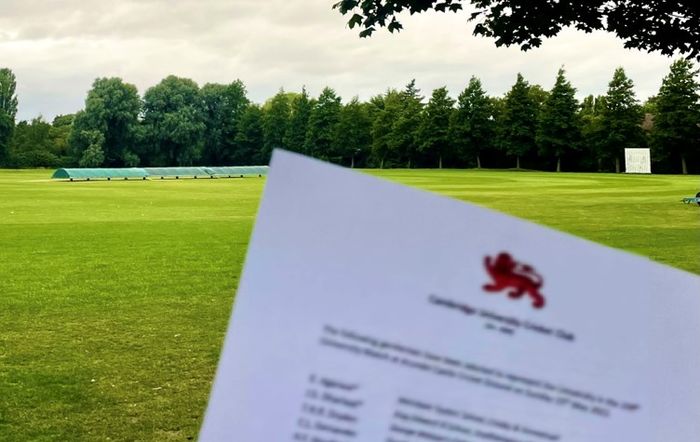Bazball: Yes, no, maybe
Alex Davies assesses recent Ashes success, but foresees greater challenges on the horizon

Alex Carey, OUT! caught Bairstow bowled Broad. The end of the Ashes 2023, nothing to separate England and Australia as the series is drawn 2-2. A fitting way to end a series that had everything. The two wicket-keepers involved had also been at the centre of the most controversial moment of the series. Four weeks before, Carey “stumped” his English counterpart and loudly brought into question the spirit of the game. As I sat in the grandstand at Lord’s, the usually tranquil Home of Cricket transformed into a football ground on derby day. Thankfully, the rowdy spectators remembered that it was cricket they were watching and stopped just short of physical altercation. Despite the heroics of England captain Ben Stokes, Australia went on to win the match, and took what appeared to be an unconquerable 2-0 lead in the series. As much as England (myself included) complained about Australia’s very different idea of sportsmanship, both losses could be put down to one thing: a bit too much Bazball.
“Bazball” describes the modern era of English test cricket since the appointment of New Zealander Brendon “Baz” McCullum as coach and Stokes as captain. Since the beginning of their reign they have instilled an ultra-positive approach which in the build-up to the Ashes was not only widely popular, but successful too, seeing England win 11 out of 13 test matches. But Australia was always going to be a greater challenge; they had won the World Test Championship against India the week before the first Ashes test and were undoubtedly the best team in the world. Although England’s “positivity at all costs” approach put them into winning positions in both of the first two tests, it also got them out of them: an unnecessary and rather arrogant declaration in the first was followed by a brainless batting collapse in the second. England were two down with three to play. For the first time, Bazball was questioned. It certainly responded. Boosted by the introduction of bowlers Mark Wood and Chris Woakes, and memories of Australian treachery, England turned the series on its head. They won at Headingley and the Oval, and were denied only by the glorious British summer in Manchester from a remarkable comeback. So 2-2 then, and England could claim the important “moral” victory. Bazball blushes were saved and Australia’s 22-year wait for a series win in England will go on.
That final wicket of Carey also held significance for another reason. It would be the last ball Stuart Broad would bowl for England, a man whose ruthless competitiveness embodied everything the Ashes means. England and cricket itself have lost a warrior. But the sadness at Broad’s departure should be far more than sentimental. Even at 37 he was England’s leading wicket taker across the five tests, and will be very difficult to replace. Broad’s final moment felt very climactic not only as a personal story, but a sign of things to come for an ageing team facing the era’s toughest tests. Broad’s advancing age is sadly the rule rather than the exception. England’s attack in the final match of the series was Woakes (34), Wood (33) and Anderson, who celebrated his 41st birthday during the match. His years of consistency were beginning to be confused with immortality, but now the cracks have started to show. It is difficult to estimate how much longer any of the remaining three will be able to navigate the perilous path of fast bowling, but it is clear that new stock needs to be blooded quickly.
Although young bowlers Matt Potts and Josh Tongue have shown signs of quality during their brief opportunities, any talent they have is raw. It seems likely Ollie Robinson, who missed the last two tests with a back injury, must be the man to lead the bowlers in the next Ashes series down under in 2025-26. Despite his impressive record he appears to lack the ferociousness of the likes of Broad, which allowed the latter such long-term success at the highest level. Before that though is another problem: a trip to India where spin is king. Although Jack Leach is steady enough, he doesn’t have much company, emphasised by the forced post-retirement return of Moeen Ali for the Ashes after Leach was ruled out. At least the batting seems slightly more stable after Zak Crawley’s coming-of-age Ashes, and his opening partnership average with Ben Duckett was the highest of any England side since 2000.
When questioned on whether the Bazball style will work in India, Stokes gave a characteristic “who knows?” before reminding the interviewer of his side’s previous successes. It is one thing to draw a series at home though, and the great sides find a way to win away. England’s recent visits to India and Australia have been nothing short of embarrassing, and for that to change and Bazball to truly triumph, young bowlers will have to fill big shoes.
 Comment / Cambridge’s tourism risks commodifying students18 April 2025
Comment / Cambridge’s tourism risks commodifying students18 April 2025 News / Cambridge student numbers fall amid nationwide decline14 April 2025
News / Cambridge student numbers fall amid nationwide decline14 April 2025 News / Greenwich House occupiers miss deadline to respond to University legal action15 April 2025
News / Greenwich House occupiers miss deadline to respond to University legal action15 April 2025 Comment / The Cambridge workload prioritises quantity over quality 16 April 2025
Comment / The Cambridge workload prioritises quantity over quality 16 April 2025 News / Varsity ChatGPT survey17 April 2025
News / Varsity ChatGPT survey17 April 2025





